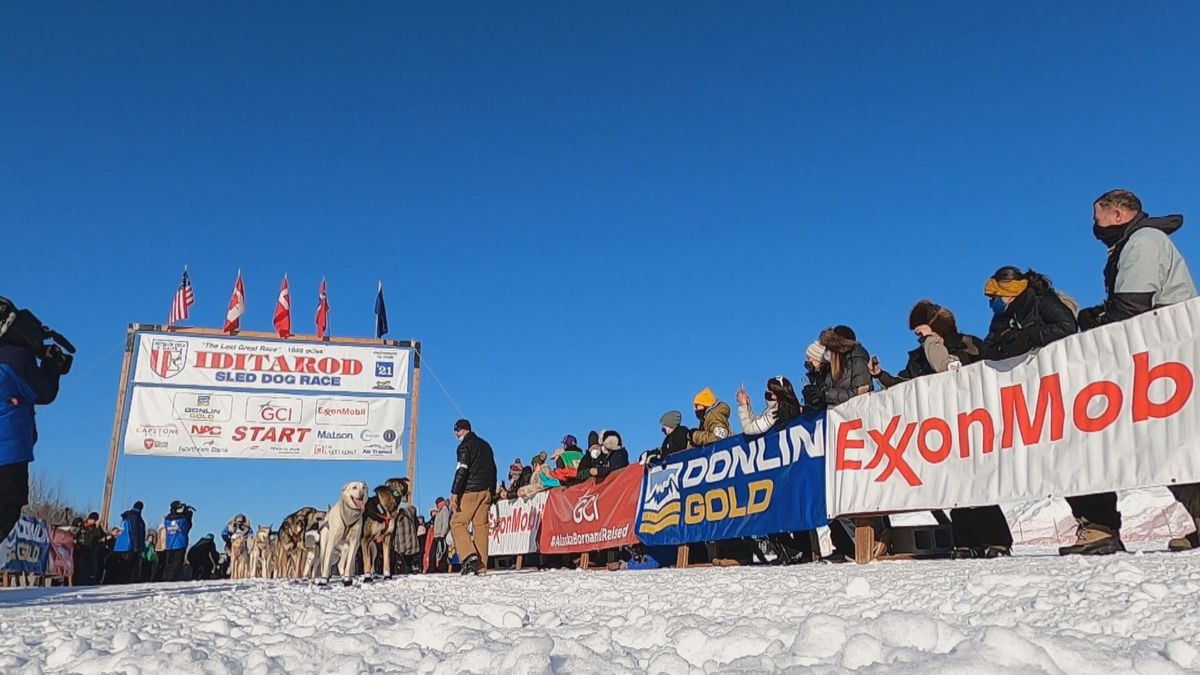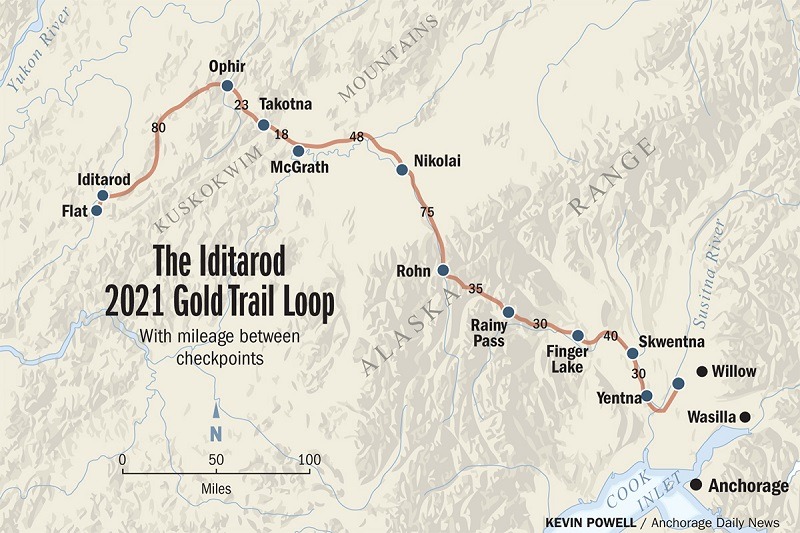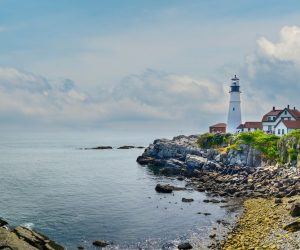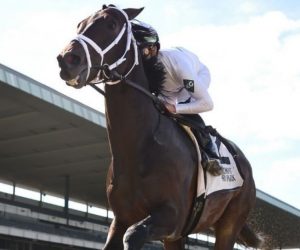The 2021 Iditarod sled dog race began this weekend in Alaska with 46 mushers navigating a special 860-mile course called the Gold Trail Loop that adheres to safety and health protocols, including no spectators, to avoid the spread of COVID-19 in small towns without proper medical facilities.

Welcome to the pandemic-version of the Iditarod. Last year’s Iditarod started before a coronavirus outbreak in the lower 48 states shuttered the NBA, NHL, and March Madness. By the time the 2020 Iditarod ended, it was the only professional sport running on the entire planet after the pandemic shut down sports all over the world.
This year’s Iditarod, the 49th annual running of the most prestigious sled dog race in the world, limited participants in the age of COVID-19. Mushers from foreign countries were unable to participate in the 2021 Iditarod, which meant 2020 champ Thomas Waerner and his lead dogs, Bark and K2, are unable to defend their Iditarod title.
The Iditarod is typically a 1,000-mile race from Anchorage to Nome. The most challenging race in the world features an arduous trek through the Alaskan wilderness. In 2021, mushers will traverse the Gold Trail Loop from Deshka Landing to the old mining town of Iditarod, where mushers and dogs will turn around and follow the same trail back to Deshka Landing. The complete Gold Rail Loop is approximately 860 miles.
The 2021 Iditarod includes checkpoints in remote areas such as Skwentna, Finger Laker, Rainy Pass, Rohn, Nikolai, McGrath, Ophir, and Iditarod, which is 442 miles away from Anchorage.

Deshka Landing > Skwenta
Mushers typically gather in Anchorage for a ceremonial start on the Saturday before the race begins. This year’s ceremonial start was postponed as a health precaution.
On Sunday, the 2021 Iditarod officially started at Deshka Landing, which is located 83 miles west of Anchorage, Alaska. Deskha is also the finish line this year.
Without 2020 champ Waerner in the mix, veteran mushers like Jessie Royer will have an edge in this tweaked format. Royer finished in third place in 2019 and 2020. She’s trying to become the first woman to win the Iditarod since Susan Butcher won her fourth Iditarod in 1990.
“It’s just impossible,” said Waerner. “Not going to Alaska this year is kind of hard and a sad feeling. It’s not only racing, it’s also being a part of the great race that goes through the nature and countryside. Such an amazing feeling. Makes you feel alive.”
“We wish the Norwegians were here,” said musher Aaron Peck.
Joe Redington Sr. is the “father” of the Iditarod. In 1973, Redington conjured the idea of a sled dog race from Anchorage to Iditarod. Eventually, the race expanded to its modern format from Anchorage to Nome.
Ryan Redington, the grandson of Joe Redington Sr., took an early lead after the first day of action. Redington started with 14 dogs in Deshka Landing. He finished in eighth place last year and he’s one of the favorites coming into the race this year.
Frenchman Nicolas Petit, who finished second in 2018, briefly took the lead on Sunday before Redington passed him on Monday.
By Monday evening, the lead mushers will pass through checkpoints at Finger Lakes (123-mile marker), Rainy Pass (153 miles), and Rohn (188 miles).











